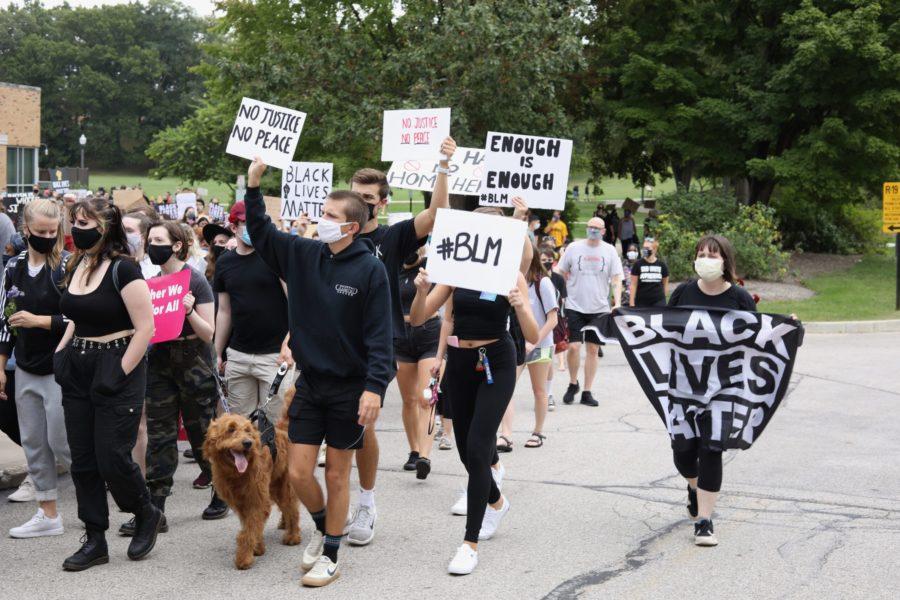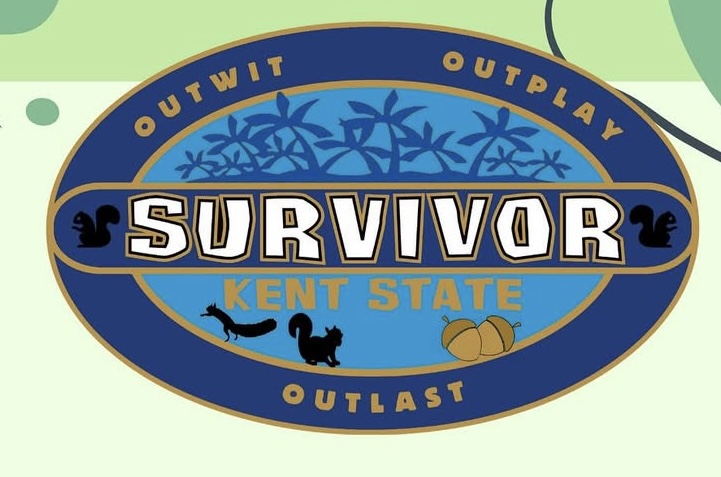Featured photo by Anastasia Lawrence
Kent State made national news earlier this month when multiple racist statements were painted on the Kent State campus rock. On September 7, the rock was defaced with “Blacks have no home here” which sparked a major outcry from Kent State students on social media for the university to properly handle the issue. This was not the first time this summer that the rock was painted with racist messages. The university previously released a statement in regard to the paintings, which some students feel was not enough. The rock paintings also initiated Kent State student protests in defense of Black Lives Matter.
This incident is continuing to affect the Kent State community, specifically the Black community at Kent. Felix Kumah-Abiwu says that the incident was “shocking.” A Pan-African professor at Kent State, Kumah-Abiwu has his Ph.D. in political science, is originally from Ghana and has been living in the United States for 16 years. “The rock incident was shocking, not only to students but shocking to all of us. I am a professor here and of course a Black person and a minority. I am raising kids here; we want to feel at home,” he says.
That is one issue that is affecting the Black community at Kent. For the past few months, the Kent State website was covered with “You Belong Here,” but this statement can feel contradictory for many Black students who face constant discrimination. “A young Black person growing up in America hears all these comments, sees all these things happening, the question of why comes up. We are a part of this system, but the system always treats us as though we are not a part of it,” says Kumah-Abiwu. Elizabeth Smith-Pryor, a history professor at Kent State who teaches African American history, talks about the issues that Black students have faced throughout the years on Kent’s campus. “Throughout the early sixties, there was a sense that Kent State University, probably like a lot of other universities, wasn’t really paying attention to the issues that mattered to Black students.” These issues have affected Black students at universities across the country for decades. Not having voices heard or safety prioritized has been a struggle of Black students at universities, and Kent is no exception.
The Black United Students [BUS] at Kent tweeted their list of demands, which include increased protection and security of Black students. “Safety is key to us,” says Kumah-Abiwu. “It’s tough being Black and being in a system where your abilities and what you do is always questioned, your very being is always questioned. So that is where the frustration comes in.”
After the rock was painted with “Blacks have no home here” it was quickly covered up with “hate has no home here.” There were calls on social media that the rock should have been left with the original message, despite the pain that it caused. It was just more evidence that Black people face these kinds of prejudices no matter where they are, even if it is on a liberal college campus. “Don’t pretend that racism doesn’t exist, and just painting it over doesn’t make racism go away,” says Smith-Pryor. “It may make it look better for the moment, but the underlying intent of whoever painted the racist statement is still there.”
A way to continue this progression, according to Kumah-Abiwu, is to break down barriers. “These are real conversations, these are barriers, barriers that we need to break so everyone can come together for a collective effort.”
Another way to combat these issues is through education. Racism in education is a major part of institutionalized racism and can affect students all over the country at different levels. “It’s going to vary professor by professor,” says Smith-Pryor. “I would just not be surprised if overall, our curriculum doesn’t effectively address racism, because it makes people uncomfortable. But education shouldn’t be comfortable anyways.”
When it comes to the Black Lives Matter movement, Kumah-Abiwu says, “Saying Black Lives Matter doesn’t mean other lives don’t matter, but Black Lives Matter because of the history of the past. If people understood that this is a group of people that have struggled all their lives in America, who are fellow citizens, then their lives should matter.”
According to Smith-Pryor, one thing to take away is: “Listen to Black students, listen to Black faculty and listen to Black staff when they tell you about things that are going on; don’t dismiss it. One thing that goes along with that is to recognize that racism has played a major role in the United States since the beginning.”

















